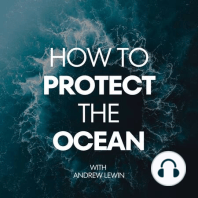128 min listen

SUFB 340: Sea Wolves, Bonnet Sharks Eating Seagrass And Candid Plea from a Coral Reef Scientist
SUFB 340: Sea Wolves, Bonnet Sharks Eating Seagrass And Candid Plea from a Coral Reef Scientist
ratings:
Length:
35 minutes
Released:
Jul 10, 2017
Format:
Podcast episode
Description
Imagine a terrestrial animal changes its diet in order to survive along the rugged coast of British Columbia. Scientists have discovered have genetically differentiated population of wolves, dubbed Sea Wolves, that derive 90% of the diet from the sea. Is this just a way of survival from their inland wolf cousins or do these wolves just enjoy the sea that much more?!?!? Also in the program, a PhD student has discovered that young bonnethead sharks are eating seagrass so much so that their diet composes over 50% of the sea veggies. Scientists wonder if the young sharks are just learning how to eat animals within the seagrass as the diet composition of seagrass decreases when they get older. Finally, did you ever wonder how scientists feel about what climate change is doing to our Oceans? Dr. John Bruno wrote an opinion pice in the New York Times about how depressed he feels after years of conducting coral reef research in Belize and all over the world. Enjoy the Podcast!!! Let me know what you think of the episode by joining our Facebook Group for the Podcast. Support Speak Up For Blue's Efforts to build a platform to raise awareness for Marine Science and Conservation and help you live for a better Ocean. Contribute to our Patreon Campaign
Released:
Jul 10, 2017
Format:
Podcast episode
Titles in the series (100)
SUFB 012: The Science Behind Blackfish and Captive Orcas: Our guest today is Dr. Naomi Rose, who is an expert in orcas for the past 20+ years. Naomi and I discuss the impact of the movie Blackfish and particularly the events that unfolded after the death of Dawn Brancheau, lead trainor of Tilicum the orca.... by How To Protect The Ocean